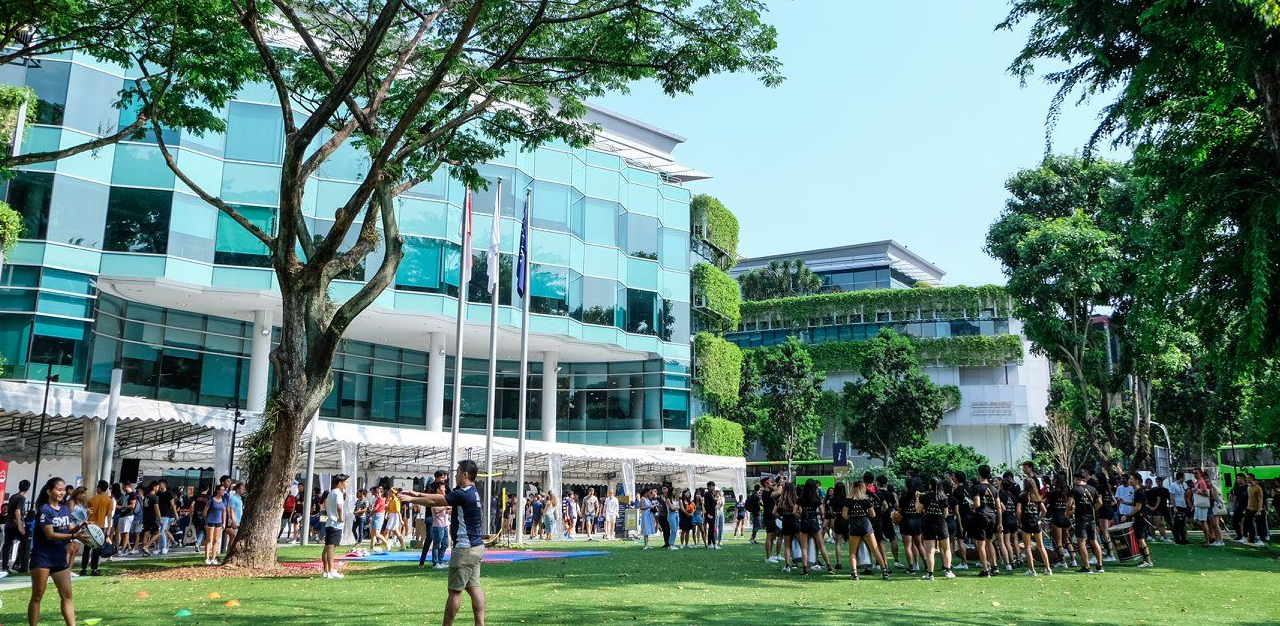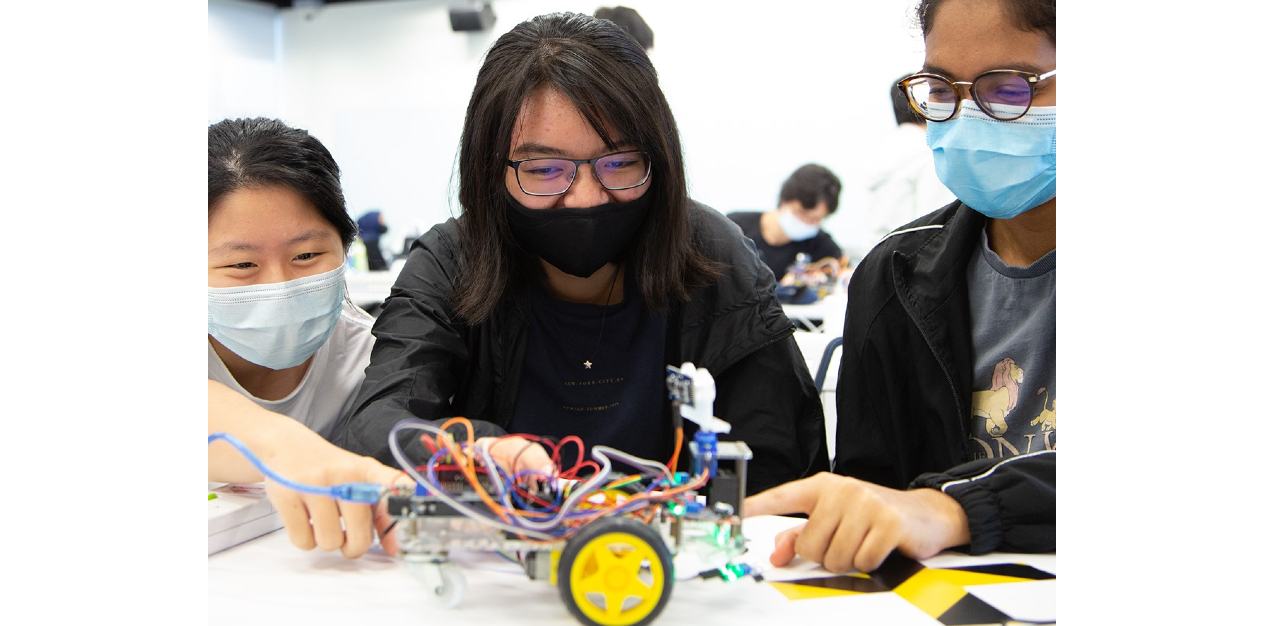“The simple point is that while we have a good Singaporean talent pool, our pool is not large enough to fulfil all of the needs, the breadth and the depth, of these enterprises. And very often, foreigners bring in skills which complement Singaporeans’ skill sets, as well,” says Manpower Minister Tan See Leng in Parliament.
Challenging this statement, Non-Constituency Member of Parliament Leong Mun Wai, from the Progress Singapore’s Party [PSP], asks Dr Tan not to “push the blame” to Singapore’s universities and polytechnics.
Plugging in gaps in the local workforce with foreign labour – especially in key sectors like finance and IT – due to a lack of local talent was one of the central arguments in the jobs debate. Do Singapore’s higher learning and training institutions fall short of producing enough qualified graduates to meet the demands of global competition?

There is talent, but on-the-job training a solution to beefing skills
Twenty-year-old Shreya Lakshminarayanan, a Politics, Law and Economics student at Singapore Management University (SMU), thinks that local universities are equipping their students with the relevant skills to compete in the workforce.
“At SMU, we get routine exposure to 21st century skills (soft skills specifically) through projects, volunteering and overseas exposure,” she says.

Whereas Gan Jia Xin, a 21-year-old undergraduate pursuing Anthropology at University College London, opines that “other than specialised degrees, such as medicine or engineering, university graduates often do not graduate with the skills needed in the workplace.”
Hence, she suggests that on-the-job training could rectify concerns about the talent gap. “These skills are learnt through doing; hands-on learning and experience is needed for employability,” Ms Gan elaborates.
Ensure only highly qualified foreign talent is brought into key sectors, like finance and IT
Dr Tan says that Singapore is lacking talent in key sectors, such as finance and infocomm, which are instrumental in creating a globally competitive economy. He adds that the rapid growth of Singapore’s digital economy, and trends in the demand and supply for tech talent globally, are reasons Singapore recruits workers from India, which along with China are “two of the largest suppliers of tech talent.” Plus, he notes, they also have the “advantage” of speaking English.
Beatrice Seet, 21, who is pursuing a communications degree at Nanyang Technological University, asserts that “as long as there is the [right] qualification, [the] race and ethnicity should not be a consideration.”
Ms Gan agrees, although she thinks it is possible that “Singaporeans do not offer the skills that Indian PMETs (professionals, managers, executives, technicians) offer, given the small market labour here.” But Ms Gan emphasises that foreign labour must “strictly offer expertise or experience that presently cannot be found locally.”

Does more competition in the job market truly create more jobs?
In a rather philosophical and paradoxical fashion, Singapore Health Minister Ong Ye Kung, who spoke in the capacity of a former trade negotiator, says that the competition between foreign and local PMEs is not a zero-sum game. On the contrary, the converse is often true, he argues: “By combining and complementing local and foreign expertise, we can attract more investments and create many more good jobs and career choices for Singaporeans.”
The trade-off at play, he explains, is whether to have “many jobs, strong competition” or “few jobs, no competition”. And suggests that finding the right balance means creating more jobs with “some competition”.
But Ms Seet disagrees and sees it as a zero-sum game when a job vacancy is at stake: “If a more talented foreigner [was] to come in and fight for the same job, I do believe the employer will consider what is more beneficial for the company, [such as] the qualifications of [the local and foreigner].”
On the other hand, Ms Gan thinks that “in theory” Mr Ong’s statement “makes sense”. She explains: “Competition means that Singapore is an attractive place to work in, which in turn indicates that investments are coming [into] Singapore.” But if Singaporeans are unemployable, and employers are not willing to hire local talent, then having more jobs does not solve the problem, she concludes.

Employability includes varied learning and support during unemployment
And it seems Dr Tan also recognises this core issue. Quoting former Manpower Minister Lim Swee Say in his ministerial statement, Dr Tan agrees that while the Government cannot guarantee Singaporeans’ employment, it will work “very, very hard” to ensure their employability.
Ms Gan says that the first step should be on the education front: “Education at pre-university levels should be more varied. On top of book learning, there should be as much hands-on learning in the workplace. Having workplace attachments, internships and apprenticeships would greatly increase employability.”

And for those who are displaced from their jobs, Dr Tan highlights that this is not only due to competition from foreign workers but other factors, like technological change and industries phasing out. He explains that this is why the Government “invests so heavily in retraining, in skills development, so that displaced workers can gain new skills and reinvent themselves, either by doing a different job in the same industry, or transiting to another industry altogether.”
But Ms Lakshminarayanan opines that “sticking to only skills retraining is the wrong approach,” because “more needs to be done to ensure that people still get support even when they are unemployed”.
More than just re-employability, she argues that the Government needs to “guarantee an appropriate standard of living, and make sure that everyone, regardless of their employment [status], is getting the resources they need to minimally survive, at least.”
Transparency with information can enforce accountability and quell xenophobia
Some think that PSP asking for information and statistics on foreign labour is reasonable and essential to enabling more transparency and accountability of Singapore’s trade and manpower policies. Made available to the public, this knowledge would also help quell xenophobia and racism on the ground, notes Leader of the Opposition Pritam Singh.
Others, however, think that releasing such data will only exacerbate existing social issues, rather than resolve the core issues of employment in Singapore.
Ms Seet agrees that being transparent is always welcome: “If there is data to support what [PAP thinks] is right, there is no reason to hide.” She also subscribes to the notion that the xenophobia expressed in Singapore “is rooted in the idea that [Singapore] is taking in too many foreign talents.” With the right information, she thinks that Singaporeans will be more educated, and this could curb any misunderstanding regarding foreign labour.

Alternatively, Ms Lakshminarayanan reckons that while statistics can hold the Government to account and dispel xenophobic myths, it does not “help in any way in solving the local employment problem.”
She says: “Ultimately, the core of the employment problems is corporations and their hiring patterns, and their motivations behind them.”
As pointed out by Dr Tan, Singapore is a city-state with no natural resources and cannot remain closed to foreign workers, or the country risks losing investments to other Asian countries.
The key then for Singapore to remain competitive, according to Mr Leong – without displacing the existing and incoming workforce – is to rebalance domestic and foreign talents, and review the clauses in free trade agreements to ensure that they do not disadvantage Singaporeans.




























